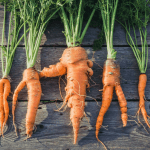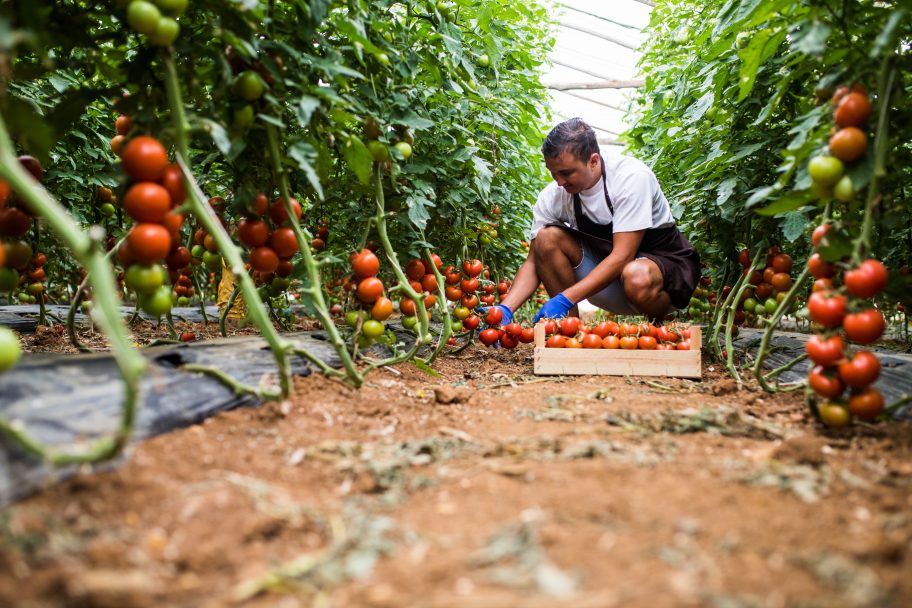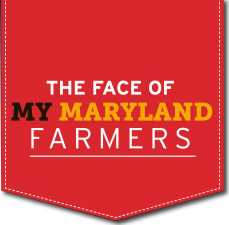 Farms across Maryland work hard during the growing season to produce fresh fruits and vegetables. With each harvest brings an income for farming families and healthy food options for the local community as they distribute their goods to local farmer’s markets and grocers.
Farms across Maryland work hard during the growing season to produce fresh fruits and vegetables. With each harvest brings an income for farming families and healthy food options for the local community as they distribute their goods to local farmer’s markets and grocers.
In a perfect world, each harvest would be fully accounted for. But this isn’t the case. According to the USDA, each year, well over 100 billion pounds of food are thrown away in the United States. In Maryland alone, thousands of pounds of produce are left over with each harvest. But at the same time, millions of people are trying to secure their next meal.
So what’s being done?
Farmers and volunteers throughout Maryland are helping connect leftover produce and Marylanders in need by “gleaning.” This is the term used when leftover produce is harvested. In this case, it’s then provided to local organizations and communities in need.
Katherine and Stephen Kraszewski of Mason Farms Produce believe gleaning helps address multiple issues. “Where many people may see excess, we see opportunity. Gleaning gives us the chance to make a difference, feed the hungry and avoid waste. Switching one’s mindset from the notion of excess or abundance to that of scarcity is a fundamental concept we try to remind ourselves of. If food is thought of as abundant then there is little reason to save all you can; you perceive no need in the world. It’s a win-win for our farm and our community.”
So how does it work?
Gleaning requires a lot of coordination between multiple individuals from volunteers to farmers to agencies that serve the food insecure. When a surplus is available, farmers contact such programs, often with very little notice, to rescue the remaining produce. Volunteer pickers are then sent to the farms to collect fruits and vegetables that otherwise would have been wasted. Once collected, the produce is distributed to homeless shelters, soup kitchens and food pantries, as well as senior centers, low-income homes and school lunch programs.
The benefits of gleaning are priceless. Beyond composting, farmers are able to provide a good home for their edibles — organizations in need receive free produce and community members have access to fresh, nutritious foods.
According to Hannah Cawley, a Maryland farmer who partners with Maryland Food Bank’s Farm to Food Bank Program, “The Farm to Food Bank Program has been such a great resource for those Marylanders in need of food, especially fresh fruits and vegetables. It’s such a great feeling seeing what would be wasted cucumbers leave our fields and head to those who need it. Before this existed, acres and acres of perfectly good cucumbers would be left behind to rot.”
Amy Cawley who runs the Farm to Food Bank Program says that excess produce happens for a variety of reasons. It could be that the farmer harvested too much and has some left that’s not being sold. Or, there may be excess in the field because it’s better to have too much than too little — in which case some farmers will allow Amy and folks from the Farm to Food Bank program to glean it. Lastly, some produce might not meet a buyer’s standard. For instance, sometimes cucumbers grow so fast that by the time they can get harvested, they are too big for a pickle jar! That’s a problem if the farmer contracted to grow cucumbers of a certain size. There’s nothing wrong with the cucumber, except it’s just too big for the purpose it was intended.
With the challenges presented to Maryland farmers in recent years by the weather and international trade issues, farmers across Maryland have taken a hit to their business. They know what it’s like to “get by” and are more than happy to help Marylanders in need.
Stephen and Katherine say, “Aside from giving back to the community that has for so long supported our farm, the most rewarding part of gleaning is the relationships built between farmers and the community. We also feel a sense of duty. The burden of food insecurity weighs greatly on people who struggle to get by daily. Removing their burden and placing it on our shoulders is a simple and worthy sacrifice of our time and effort.”
Hungry for more? Sign up for our newsletter and find us on Facebook, Twitter and Instagram.


This is beautiful! It is also a biblical principle. Way to go Maryland Farmers, you’re the best!
Thank you from a retired horticulture teacher!
How can I get involved to volunteer?
Hi Alcira, Thanks for your message and interest in volunteering! Please visit the Maryland Food Bank’s volunteer page here: https://mdfoodbank.org/ways-to-give/volunteer/
How do I help?
Hi Kim – thank you for your message and for your interest in helping! You can contact the Maryland Food Bank through this page: https://mdfoodbank.org/ways-to-give/volunteer/ and find opportunities to volunteer with gleaning or other activities!
Great way to show God’s love to less fortunate. Imperfect produce ( in the eyes of superfood markets) are just as nutritious and useful as the “perfect” produce. Good job, farmers.